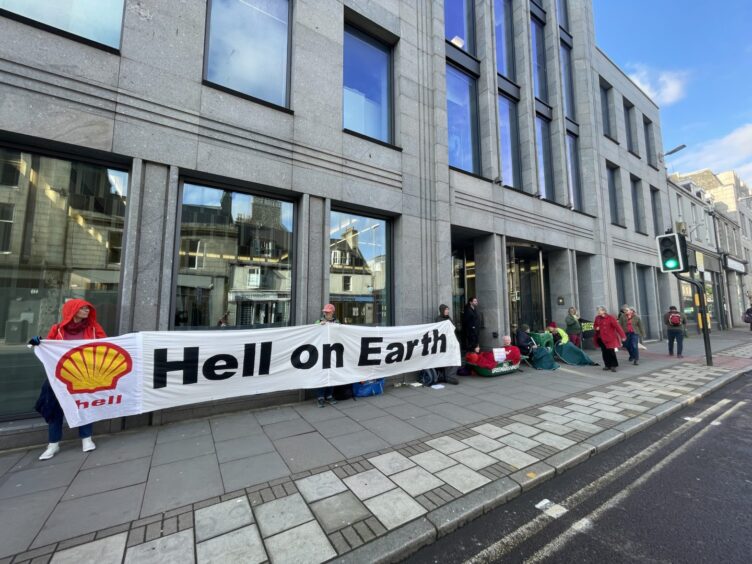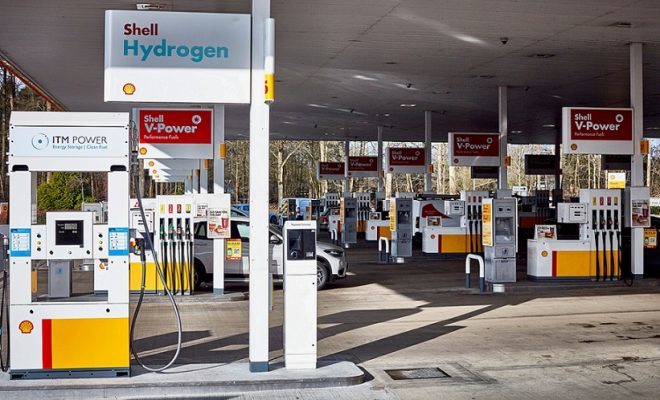
A Dutch court has overturned a landmark ruling against Shell that would have forced the oil company to reduce emissions produced by its petrol customers.
An appeal court in the Hague decided that, while Shell is responsible for emissions from its operations, it will not be held accountable for emissions caused by the combustion of its products or for reaching a percentage reduction.
Climate campaign group Milieudefensie, the Netherlands arm of Friends of the Earth, sued Shell for emissions produced throughout its entire value chain in a Dutch district court in 2021.
The Court of Appeal in the Hague has rejected campaigners’ claims, ruling that although Shell is obliged to reduce its carbon emissions, the “percentage” reduction that it should make in emissions cannot be determined.
The District Court of The Hague had instructed Shell to cut global carbon emissions by 45% by the end of 2030 compared to 2019.
As a result of the initial Dutch ruling, Shell would have to have taken responsibility for some 95% of its emissions by reducing those produced when its customers burned petrol at the pumps.
“A court ruling would not reduce overall customer demand for products such as petrol and diesel for cars, or for gas to heat and power homes and businesses,” Shell said in a statement.
“We believe that smart policies from governments, along with investment and action across all sectors, will drive the progress towards net-zero emissions that we all want to see.”
The ruling on Tuesday means that important parts of the verdict will be reversed, Milieudefensie said.
It sets a precedent for oil and gas companies to take responsibility for reducing their CO2 emissions and confirms that new oil and gas fields are “at odds with” the Paris climate agreement, the campaign group added.
“It is hopeful that the court will determine that Shell is responsible for reducing emissions and that companies must also respect human rights,” said Donald Pols, director of Friends of the Earth Netherlands.
Defining emissions targets not possible
The decision means that, while Shell is legally required to reduce its own emissions in its processes, it gives the company a reprieve on taking responsibility for the emissions of its customers – and does not require it to meet strict emissions-reduction targets.
The Dutch appeal court said there was insufficient agreement on a specific reduction that an individual company such as Shell should adhere to.
The court also acknowledged that Shell is already working to reduce its own emissions under scope 1 and 2 of internationally recognised emissions reporting standards.
It said that a ruling requiring companies such as Shell to reduce the emissions caused by its customers would be “ineffective”, as other companies would simply take over trading.
“We are pleased with the court’s decision, which we believe is the right one for the global energy transition, the Netherlands and our company,” said Shell chief executive Wael Sawan in a statement.
“Our target to become a net-zero emissions energy business by 2050 remains at the heart of Shell’s strategy and is transforming our business. This includes continuing our work to halve emissions from our operations by 2030.”
The new ruling could still set a precedent for companies with high emissions in their operations.
By the end of 2023, Shell said it had met at least 60% of its target to halve emissions in its operations by 2030, compared with 2016.
Shell said that, by the end of last year, it had achieved its short-term target to reduce the net carbon intensity of the energy products it sells – a 6.3% reduction within its ambition of 6-8%.
The oil major said it had set a new ambition in 2024 to reduce customer emissions from the use of its oil products such as gasoline, diesel and kerosene, by 15-20% by 2030 – compared with 2021.
Shell has plans to build one of the biggest green hydrogen plants in Europe, Holland Hydrogen 1, by 2025.
At its capital markets day in 2023, Shell set out a plan to invest $10-15bn from 2023 to 2025 in low-carbon activities, equating to approximately 23% or over one-fifth of capital expenditure in 2023.
Its low-carbon capex commitment for 2024 is expected to be set out in its fourth quarterly financial report.
Scope 3 emissions
The appeal is among a raft of cases being brought in the courts that challenge oil companies to take responsibility for end-use emissions, such as those produced by petrol cars, under the Environmental Impact Assessment (EIA) directive 2020.
It concerns a remit in the Greenhouse Gas Protocol known as ‘scope 3’, which requires companies to take responsibility for emissions throughout the corporate value chain.
Several recent cases have debated the extent to which these laws apply to oil companies and new oil fields.
The Finch ruling this summer upheld a decision not to allow an oil field in Surrey to proceed on the basis of the contribution its end products would make to greenhouse gas emissions.
But the Dutch suit against Shell was the first time that an oil company has been instructed by a court to reduce petrol emissions.
Shell challenged the ruling in an appeal that was heard by the appellate court in the Hague. The hearing began in April 2024 and concluded on Tuesday.
It will be a testing week for Shell. Its Jackdaw asset, an in-development mature gas basin in the UK, could be forced to go back to the drawing board as a result of a separate hearing that also concerns Equinor’s Rosebank oil project.
The case, brought by Greenpeace and Uplift, also concerns scope 3 emissions and how they are calculated and implemented under the European directive.
That case kicks off on Tuesday and is expected to last for up to four days.



